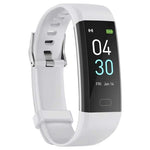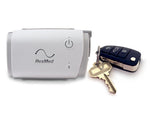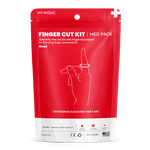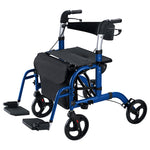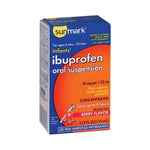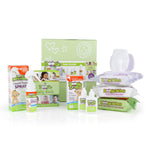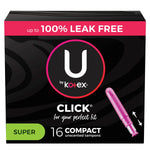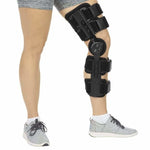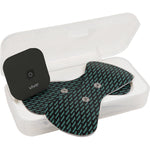Your cart is empty
Looks like you haven't added anything to your cart yet
Don't Have an HSA? Here's What You Need to Know
Just got your HSA and are unsure how to use it? Maybe you don't have one and you want to start saving on medical expenses. Today we will talk all about how to open an HSA, how to use it, and what you can use it on! (Those eligible expenses you keep hearing about)

Hello Friends! Hoolio here! I hope you are having a fantastic day! Today we are going to be covering a very important topic, so get ready. Many of my previous posts have covered all the amazing benefits of an HSA and how it can help manage healthcare costs, but I would bet my longest tail feather there is someone out there who thought to themselves, ‘that’s great Hoolio, but how do I get an HSA, and how do I use it?’ Well, you’re in luck! That’s the very topic of conversation today!
But first, let’s take a quick moment and review the basics:
WHAT IS AN HSA?
In short, an HSA is an account funded by pre-tax money set aside for medical needs. The benefits of using an HSA allow you to contribute, grow, and spend your money all before you pay a dime in taxes! HSAs are an excellent way to save on qualified medical expenses not only because of this triple tax benefit (learn more with these other posts!), but because:
♦ You have easy access to your savings with high growth potential
♦ Your HSA is portable (it still belongs to you when you change employment)
♦ Your funds rollover from year to year
You're already spending money on healthcare anyway, so you might as well save a few thousand dollars by funneling that money into an HSA first!
If you would like to learn in more detail about what an HSA can do for you, check out my other post “Why Should I Get an HSA?”
WHAT ARE THE REQUIREMENTS TO OPEN AN HSA?
In order to open an HSA there are a few requirements that must be met. Most notably, you are required to be covered under a high deductible health plan, or HDHP. The IRS has defined this to be an insurance plan with a minimum deductible of $1500 for an individual and $3000 for a family.
In addition, you can’t have any supplemental coverage (dental and vision are fine), you can’t be enrolled in Medicare, and you can’t be claimed as a dependent on someone else’s tax return.
The full details on the requirements to open an HSA are listed on the IRS website, so feel free to check it out if you want to know more.
An HDHP is a good option for those who don’t anticipate having a lot of medical expenses or even for those who just want to save on a monthly plan. Remember, typically if you have a higher deductible, you are going to have a lower premium, so the money you save on taxes with an HSA can help to cover the cost of the deductible!
HOW TO SIGN UP FOR AN HSA
Hint: It’s super easy! Here at HSA Depot, we have set up an awesome relationship with Lively, a company who offers HSAs without any hidden fees! They are 100% free for individuals and families with a simple, intuitive, and transparent process. It is super easy to sign up and only takes a few minutes! Lively brings HSAs into the modern era and make it easier for you to keep health care costs low so you can plan for the future!
Ready to experience the sweet benefits of an HSA for yourself? Simply follow this link or QR Code to Lively’s website and they will get you set up with your very own health savings account!

Note: When you follow this link and sign up for an HSA, HSA Depot earns a small commission at no extra cost to you.
It’s as easy as that! Sign up for an HSA, plan ahead on what medical expenses you will have for the year so you can know where you should spend you HSA money, and start saving!
HOW DO I USE MY HSA?
So you got yourself an HSA, all ready to save thousands of dollars, but now what? How do you use your HSA? Let’s start with how to get money in there, shall we?
CONTRIBUTIONS:
There are several options for putting money into your account, the most common being payroll deductions. If your HSA is sponsored through your employer, you can set a portion of your paycheck to be automatically taken out before taxes and put into your HSA on your behalf.
There is an annual contribution limit set by the IRS to be considered, so be sure to plan ahead. In the year 2023, it is $3850 for an individual and $7750 for a family. Those over 55 also have the option to contribute an additional $1000 each year.
Second, your employer can also contribute funds to your HSA. This is typically offered as a benefit when you sign up. You’ll want to make sure to coordinate contributions with your employer because money from any source counts toward the limit.
Third, you can have an individual recurring contribution. This is an automatic transfer from your checking or savings account to your HSA, and it is often used by those who may not have an employer-sponsored HSA. If you don’t want to remember to make the transfer yourself each month, this method would work well for you.
On the other hand, if you have a big medical expense coming up, or perhaps you did forget about monthly deposits, you can also make a one-time individual contribution. This can be a good option to assist in helping you max out your contributions each year.
Fourth, there is the option for third-party contributions. Perhaps you have family or friends (or really anyone) who want to help you out; they have the option to contribute to your HSA account in your behalf as well.
As you may have noticed, every option except the payroll deductions come from money that has already been taxed, but fear not! The savings will come back to you when you file your tax return!
DISTRIBUTIONS:
Next, let’s discuss how you can access your money. I know you’ll be thinking about those big dollars just waiting for you.
The nice thing about your HSA, as has been discussed before, is that there is no time limit for when you must use it. The funds roll over from year to year with no use-it-or-lose-it policy like other healthcare spending options.
When you are ready to use your HSA, typically your provider will give you a debit card when the account is opened so you have a convenient way to access your funds. You can use it anywhere where an HSA card is accepted. HSA Depot put in the extra work to make sure their payment processing always works for HSA cards!
Another option to access your funds is through reimbursement from your provider. Upon purchase, you can use another mode of payment, then give your provider a receipt as proof that it was an eligible expense. A reimbursement will then follow.
SAVINGS:
What can your HSA money do? Well, besides helping you save on medical expenses, your account can also be used to save for retirement as well! I talk all about it in my post “Getting the Most Long-Term Bang on Your HSA Buck!” Since healthcare costs can make up a significant portion of your budget in retirement, this can be a very useful option!
You also have the ability to invest your HSA money, if you so desire. The fluctuations of the stock market can seem a little intimidating, but if you have a long-term goal (retirement for example), the short-term fluctuations of the stock market won’t have much of an impact on your funds. However, if you plan on using your money in the same year you contribute it, it might be best to keep it in the cash section of your account, ready to pull out when needed.
WHAT CAN I SPEND MY HSA MONEY ON?
There are many eligible expenses you can use your HSA to save on! For example, you can use it on medical care. This includes any payment to doctors, hospitals, or other healthcare providers (including copayments and things that count toward your deductible!). It also includes over-the-counter and prescription drugs, imaging (such as MRIs), and medical equipment and supplies (everything at HSA Depot).
Vision care is also an eligible expense, even though it commonly isn’t covered by insurance. How exciting is that? This means, eye exams, eyeglasses/accessories, and contact lenses/solution are eligible. Even things such as eye surgery and other vision correction treatments can be paid for by your HSA.
Dental care is included as well, so things such as teeth cleaning, application of sealants, and fluoride treatments are on the eligibility list. In addition, x-rays, fillings, braces, extractions, and dentures are there as well.
It can be a little difficult to know precisely what is eligible and what is not, but our good friends over at Lively, an HSA provider, have put together a free search engine that can aid you! Also, every item on our HSA Depot website is HSA approved; we’ve done the research for you! So feel free to browse what we have available.
Give me a hoot down in the comments below what questions you have! My mission is to empower you to be a master of your HSA!
Hope you have a fabulous week!
Sincerely,
Hoolio
- Choosing a selection results in a full page refresh.

